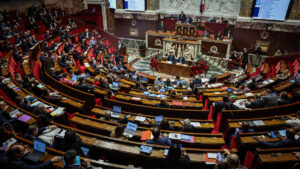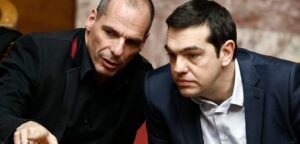
The 2026 federal budget cleared another hurdle in the Bundestag this week. It’s a budget that leaves Germany tied up in huge debt – and comes with a huge interest burden. What does this mean for future generations?
The numbers are hard to imagine: the federal government wants to add 180 billion euros in new debt next year. This means that every third euro the federal government spends will be financed with credit.
If Finance Minister Lars Klingbeil has his way, this will make things much better in Germany. “We are investing in the strength of our country, in the strength of the economy, in competitiveness, in good and guaranteed jobs and in justice,” the SPD politician said in a speech to the Bundestag.
The younger generation can also benefit
But how fair is the debt package, especially for future generations? If you ask students in Berlin, they will have mixed feelings about this new debt: “I feel that politics is mainly for old people,” says 20-year-old Benjamin Birnbaum.
Jörn Hansen, 23, is also worried: “Of course there’s always the question of whether it’s up to us later.” The savings policy in previous years was also inappropriate.
Andres Alvarez, 30, was highly critical of the purpose of taking on the debt. He worries: “Money for infrastructure will not only flow to civilian infrastructure, but also to weapons.” He was worried about how these debts would ultimately be paid.
Are today’s boomers getting into politics at the expense of future generations? That’s not all, says the head of Munich’s Ifo Institute, economist Clemens Fuest: “The younger generation could even benefit if the money from loans is used intelligently and actually flows into investments.” The return on investment must be higher than the interest the state must pay.
Interest expenses will double by 2029
And the numbers are high: the federal government already pays 34 billion in interest annually. By 2029, this amount could double to 66.5 billion euros. Money that is no longer available for future investment.
This means that investments must ensure the economy runs and tax revenues increase massively.
Finance Minister Klingbeil also hopes for this. “We in the federal government will do everything we can to finally get our economy up and running again.”
Economists like Clemens Fuest of the Ifo Institute currently doubt that the federal government is doing all it can. They say the federal government is using the money inappropriately: “Current estimates suggest that about half of the money is being misused, for example used for consumption. And that is bad news.” Consumption means, for example, social spending, subsidies for the health system, or pension funds.
Stop retirement package?
Some economists have suggested scrapping planned retirement packages. A package that the Youth Group of the Union parliamentary group does not want to have in the Bundestag – and which generally emphasizes intergenerational equality.
“It’s clear to us: We also have to distribute the burden between generations more fairly so that things don’t always harm the younger generation,” said the head of the United Youth Group Fraction, Pascal Reddig.
Whether the younger generation will still benefit from the debt pile or will end up paying even more is yet to be decided. Very different from next year’s budget. This will be decided by the Bundestag at the end of this week.





